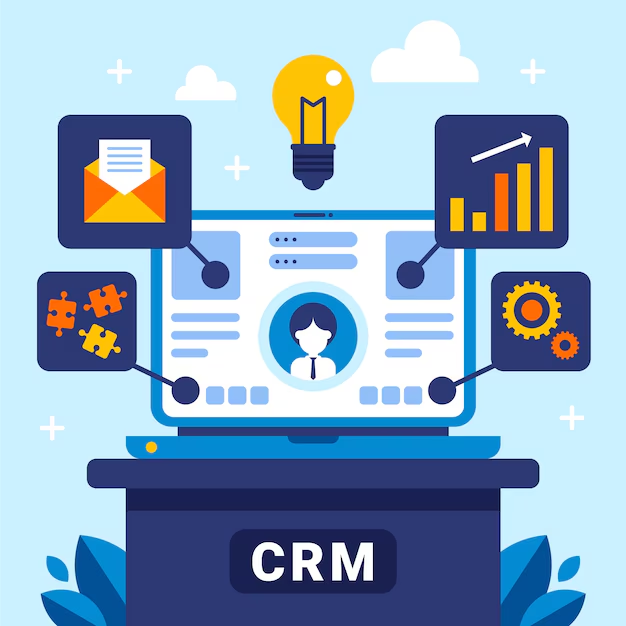Best CRM for Small Business: Choose the Best for Your Growth
Customer relationship management is critical for the operations of any line of business. The best CRM for small businesses helps everyone unify customer interactions, monitor their purchases, and retain more clients. However, the plethora of features and capabilities makes one wonder which is best suited for them. This blog aims to explain the best CRM for Small Businesses to assist your company further and which CRM systems have high rankings.
What are the Pros of Best CRM for Small Business?
A CRM is not merely an instrument; it’s a model for dealing with clients. Indeed, if you run a small business, a CRM can help you stay on track and emphasize development. However, the question remains: How can the best CRM for Small Business help you? Here are a few significant reasons:
Enhances communication strategies:
A CRM helps improve the communication between the employees and the customers. All interactions are documented in one place; therefore, one cannot misplace emails or forget to call back.
Saves time:
Bulk scheduling, reminders, and follow-ups are abilities that can be programmed into this software.
Boosts productivity:
CRMs help increase your team’s efficiency and direct it towards the most critical aspect—the customers.
Selecting the best CRM for small businesses makes the team’s work more efficient, and the clients appreciate it.
What Can a CRM Bring to Your Business?
Executing the best CRM for small businesses means investing in your company’s future. A well-implemented CRM system affects not only customer satisfaction but also the entire efficiency of the business. Here’s how it works out for your business:
Increase the amount of sales:
Working with sales leads and automating the process of follow-up activities helps you convert sales leads into sales.
Customer retention:
Ensure proper communication with your customers and no one is left behind.
Informed decision-making:
Collect data in the CRM and analyze trends to make intelligent choices about marketing and sales initiatives.
Who Uses CRM in Small Business?
Owning a small business and handling various clients necessitates a CRM system. It helps to record all interactions so that no essential discussions are missed. But is there a need for a CRM? Here’s who will gain the most from the application of the CRM:
Entrepreneurs:
Are you fed up with managing your client’s data? Adopting a CRM can make it easier for you.
Sales employees:
It helps monitor prospects and close sales with an extensive system.
Customer support staff:
Finish customer issues and improve operational processes.
CRM is not only for big companies. Thus, any small business can benefit from one of the best CRMs for small businesses.
What Gives Certain CRMs an Edge When Using Them for Small Businesses?
The best CRM for small businesses should have features that satisfy your particular requirements. However, there is a clear distinction between different CRMs, and the one suitable for you must be:
First Rate Ease of Use:
The concise and user-friendly design enables members of your work team to begin without any orientation.
Budget-friendly:
Small firms require efficient and valuable services at an affordable rate. Seek a CRM that provides the best services within your budget.
Expandable:
Any customer relation management system should be able to adapt and conform to the growth of the business.
Configurable:
All small companies are different, so you need to select a DMA that is adjustable to fit your business operations.
Describe the List of Most Best CRM for Small Businesses
Below is a compilation of the best CRMs that cater to small businesses:
HubSpot CRM:
- Why it’s great: It has a free version with features such as email tracking, meetings, and noting down contacts, and it is growth-friendly. It is an asset for developing companies.
- Best for: Small businesses who are new to CRMs.
Zoho CRM:
- Why it is excellent: Zoho contains a comprehensible CRM system with many automation possibilities and different integrations.
- It is best for Companies seeking low-cost and rich-featured software.
Salesforce Essentials:
- Why it is excellent: Salesforce’s products have compelling features for small niche markets, an intelligent interface, and outstanding customer service.
- Best for: Expanding businesses that require scalability and complex features.
Pipedrive:
- Why it’s excellent: Pipedrive is based on the purpose of sales teams and, therefore, assists them in making and tracking deals.
- Best for: Small businesses that are driven by sales.
Freshsales:
- Why it’s great: This CRM’s simple design technology uses artificial intelligence to track and score sales leads.
- Best for: Assigning intelligent automation to small teams without breaking the bank.
Where to Begin if One Has to Find the Appropriate CRM?
One must first comprehend the need to settle on the best CRM option. It is not just looking at the pricing but also considering the functions and how they would assist the said business instead. The steps to be observed when making such choices include the following:
Evaluate your business requirements:
What processes or challenges do you want a CRM to help with?
Do deep research on the CRM market:
Study CRM systems in terms of their characteristics, prices, and opportunities for future growth.
Get a feel of a CRM without paying for it:
Try different CRMs by taking advantage of their free trials.
Consider existing financial constraints:
Ensure the CRM you choose is affordable.
When is it Appropriate to Deploy a CRM?
Before implementing a CRM system, you must assess whether your business is ready to embrace it. If poorly organized client communication or lost opportunities are not uncommon for you, you need a CRM.
- Losing leads is the biggest challenge businesses deal with daily.
- CRM helps you catalog and track the contacts as well as the follow-ups.
- A CRM helps monitor and resolve customer problems in a quicker time frame than usual.
Which CRM is the best for small businesses?
Determining the best CMR system for small companies is complicated, as many factors influence decisions. HubSpot, Zoho, and Salesforce Essentials products represent the best features, simplicity, and price.
How much should I budget for CRM software?
There is no single price for CRM systems. Some of them, such as HubSpot CRM, are free, while others range from $10-$30 per user per month.
Are CRM systems worth it? Do they help boost sales?
Of course. A CRM assists in managing sales better by managing leads, automating repeat tasks, and organizing customer details to facilitate closings and enhance customer relations.
Why is it complicated to set up a CRM system?
Users usually find this simple because CRM systems such as HubSpot or Zoho provide simple-to-use environments. Most CRMs also offer a getting started guide.
Conclusion:
Selecting the correct CRM for small businesses to have healthy customer relationships and increase productivity and sales is critical. If you know your company very well and make sure you look at the best CRMs, then you will choose the one that will bring the desired outcome. Whether managing customer data or team collaboration, you must know that there is a solution. “GHL Star Boys makes customer management process effective. Our comprehensive CRM platform clarifies communication, advanced leads, and customer retention. Stop waiting around today and start improving your business. Book a demo for free, and let us help you enhance your growth potential today!”






